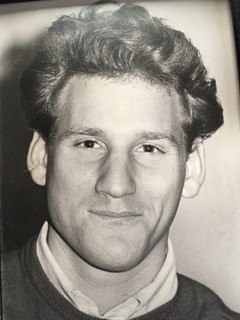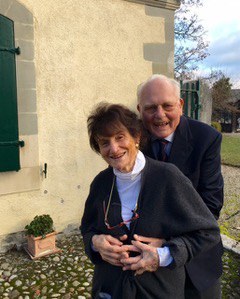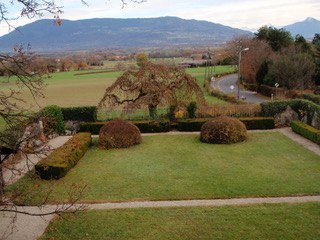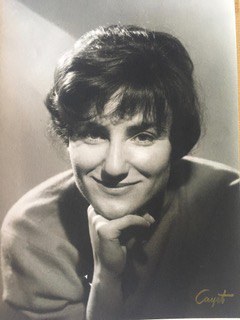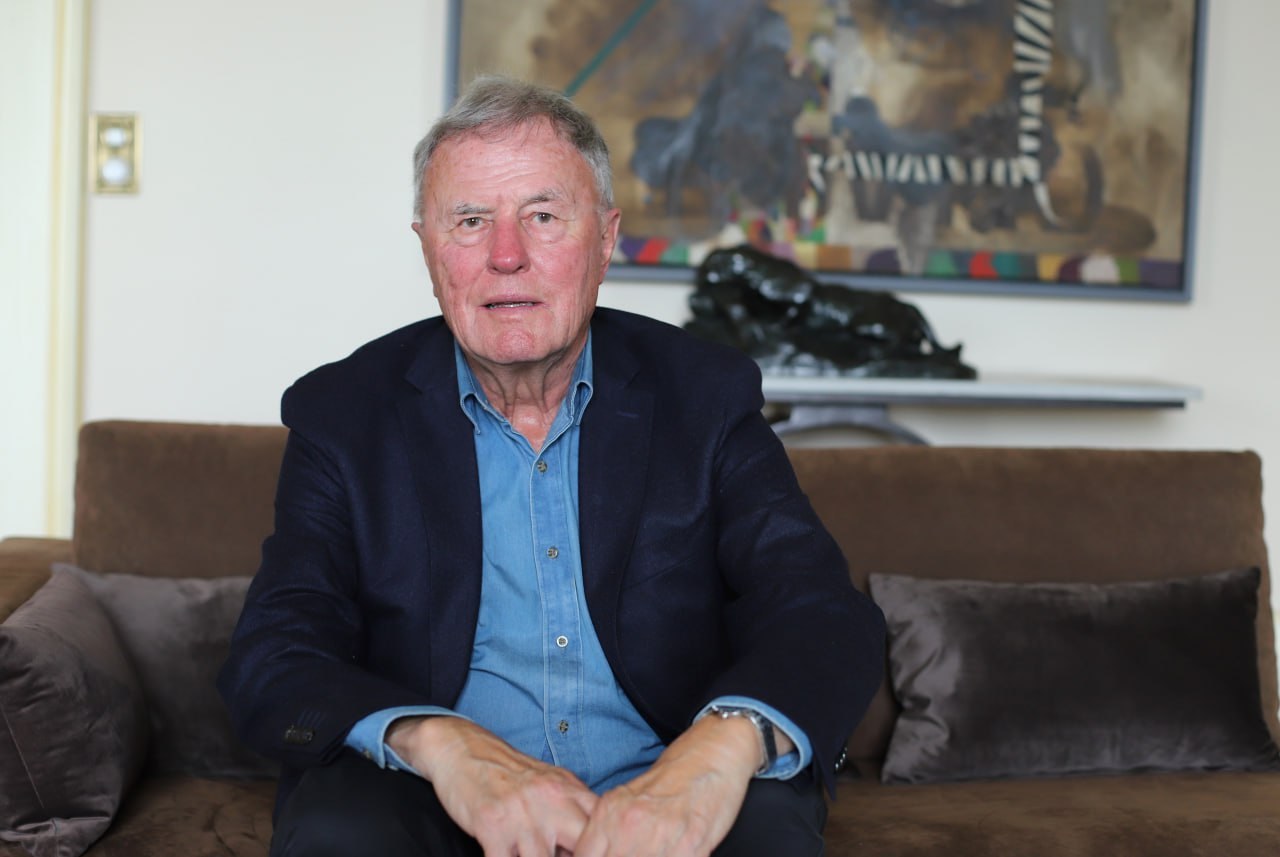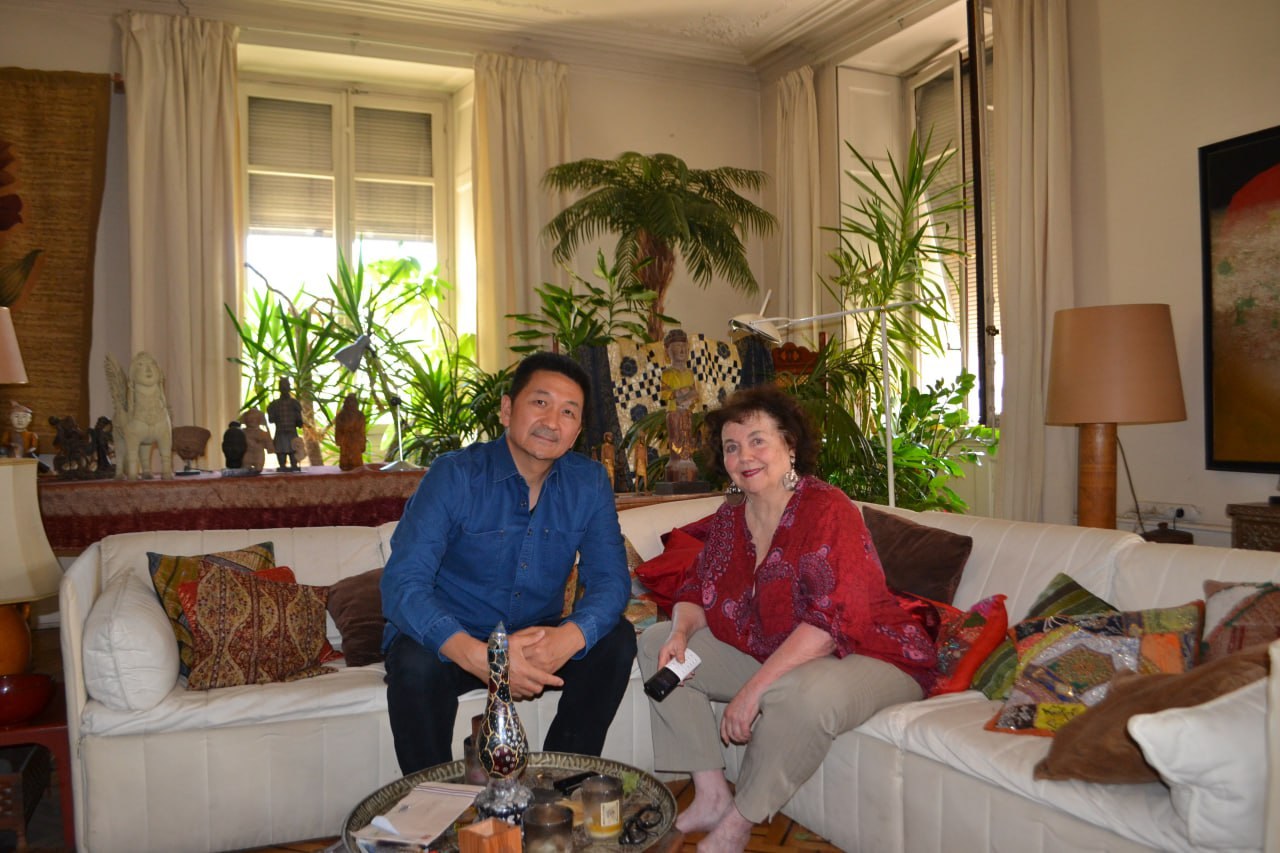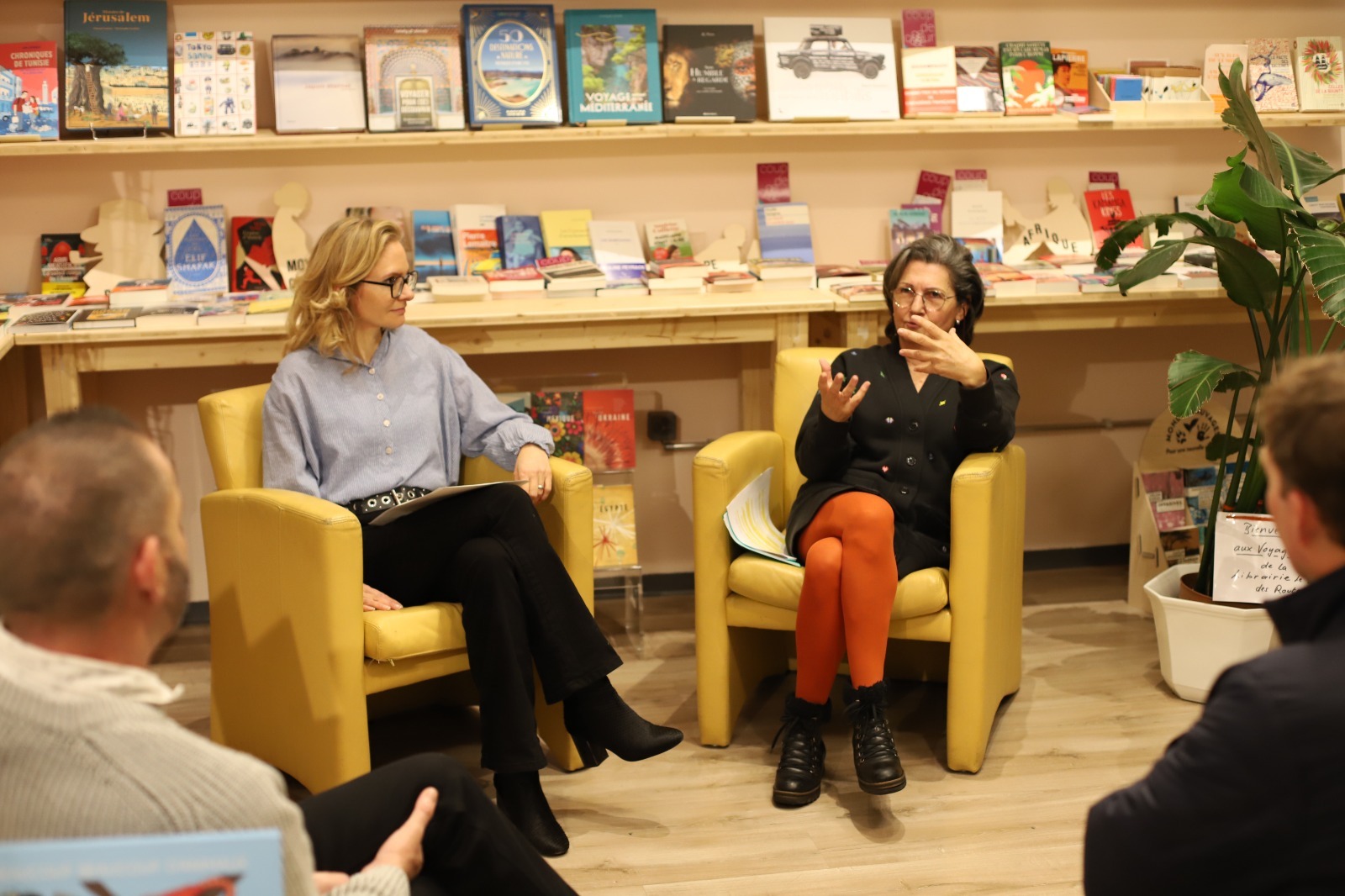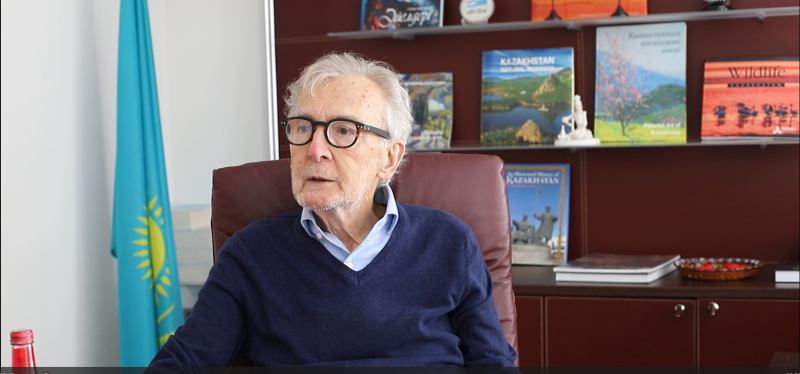A childhood between two continents
I spent my childhood in America, mainly in New York and Boston, where I was born in 1964. Until I was 18, I grew up in this environment, but I regularly came to Switzerland on vacation. Then, in 1982, at the age of 18, I moved permanently to Switzerland. Since then, I've lived in different places: a few years in London, Zurich, a year in Berlin, and the rest of the time in Geneva - probably around 35 years.
For a large part of my career, I worked in finance, as a bond trader, an activity I carried out for almost 25 years. Today, I'm less involved in traditional finance, but I've discovered the world of crypto-currencies, where I'm now active. For several years, I even hosted a podcast devoted mainly to Bitcoin.
On the family side, my father was of Swiss origin, while my mother was Polish. She grew up in Poland during the war and left her country in 1957 to come to Switzerland, where she studied medicine. It was here that she met my father - they were both doctors and married. They lived in Switzerland until 1960, when they decided to move to the United States.
There were two main reasons for their immigration to America. On the one hand, there was a strong professional attraction: in the 1960s, the United States was a world center for medical research. My parents, involved in this field, found America more stimulating for their scientific projects. At the time, President Kennedy had launched ambitious initiatives, notably the space program, which injected considerable funding into research. This made the USA particularly attractive to scientists and researchers from all over the world.
On the other hand, there was a personal motivation: my father had a very conflictual relationship with his own father in Switzerland. This prompted him to seek a fresh start, far from his family environment. This dual dynamic - the attraction of opportunities in America and the need to get away from his father - explains their decision to leave.
The weight of roots and family choices
Despite this, my father remained attached to Switzerland, to which he returned much later. This bond, along with my frequent visits to Switzerland as a child, had a profound influence on my view of the two cultures.
Both
my parents were doctors, having studied medicine and devoted their
careers mainly to medical research. My father came from a wealthy
Swiss family. In Switzerland, there isn't really any nobility in the
French or Italian sense, but certain families are distinguished by
their heritage, their education and their position in society. In
those days, military rank was also a sign of social status. My
mother, on the other hand, came from an entirely different
background: she was a Polish Jew, one of the few survivors of her
family after the war. Her entire family perished in the Holocaust.
After the war, she left Poland, first for Belgium, then for
Switzerland, where she rebuilt her life.
Of my mother's family, only one cousin remains. By contrast, my father's family, spared the tragedies of war, is much larger, and I have many cousins on that side.

Education and cultural differences: Switzerland versus USA
If we compare growing up in Switzerland and the United States, I'd say that growing up in America is much more difficult than in Switzerland. At least, that's my experience. Children in the United States grow up faster. Even though I grew up in a rather privileged environment, whenever I came to Switzerland on vacation, I found that Swiss children lived in a much more protected world. This meant they matured less quickly, and were less suspicious of others. Here, everything seems simpler: there's less crime, less pressure.
To
illustrate, Italian friends in Geneva told me that in Naples, people
grow up quickly because of the presence of mobsters in the streets,
forcing children to develop sharp instincts from an early age. Well,
America is a bit like that, albeit to a different extent.
Switzerland, by comparison, has always seemed to me like a cocoon, a
protected world. Which can have its advantages and disadvantages.
In terms of education, although I was lucky enough to go to good schools in the U.S. - both my parents ended up as Harvard professors, which gave me an intellectually privileged environment - I'd say the teaching was better in Switzerland. In my opinion, education in Switzerland is more structured, whereas in the U.S. there's more emphasis on initiative and creativity.
This raises a fundamental question in the education of children: should they be given a structured framework, taught well-defined lessons that they faithfully reproduce, or should they be encouraged to think for themselves, to develop their critical thinking and creativity? Of course, the best answer is to do both.

America: a land of opportunities and contradictions
In America, however, structured education is often less prevalent. Children are less expected to learn a lesson rigorously and then reconstruct it. As a result, they may have less mastery of the subjects they learn. On the other hand, they develop a spirit of initiative and questioning that will stand them in good stead later, as adults.
In Switzerland, the opposite is true. Children are often better supervised, and learn to reproduce precisely what they have been taught. But when students go on to university, they sometimes encounter difficulties, as they find themselves less supervised and need to take more initiative. They are then confronted with a change of method that can be destabilizing.
Another aspect I've noticed is that Swiss students are often more disciplined, especially in subjects like math, which is taught at a more advanced level than in the USA. Over there, math is not always as demanding or valued.
In short, each system has its strengths and weaknesses. The ideal would be to combine the best of both worlds: Swiss discipline and rigor with American critical thinking and initiative.
I then moved to Zurich, where multilingualism is even more evident than in Geneva. Inhabitants are very polyglot, which is not surprising in a country like Switzerland, where there are three national languages. Added to this is the almost universal mastery of English. Most people are fluent in two or even three languages, which is a huge advantage.
In many other countries - be it America, England or even France - the majority of people master only one language. This linguistic ability, typical of the Swiss, is not only an excellent mental exercise, but also a sign of open-mindedness.
In addition to this linguistic diversity, the Swiss education system often emphasizes subjects such as mathematics, which are taught at a more advanced level than in the USA. In the U.S., the educational approach often gives children more freedom to explore their interests and develop their strengths, but this can be to the detriment of their weaknesses, which are sometimes less worked on.
I'm often asked whether the United States really is the land of opportunity, where you can realize your dreams more easily than elsewhere. Is this true? My answer is yes, it's true, but it's also more difficult than you might think.
First of all, America has changed a lot since I lived there. Secondly, although the opportunities are still there, they are now harder to seize. However, the potential for success remains incomparable, which is undeniably a major asset. As with everything, there's a good side and a bad side.
To be honest, I left the United States because I didn't like the country. Why didn't you like it? What didn't I like? For me, Trump symbolizes everything I hate about America: a superficial appearance where success is the only thing that counts, but a success often based on appearances and money. Relationships sometimes seem to be dictated by self-interest rather than genuine sincerity. A mentality where “cheating is acceptable as long as you don't get caught”, and where finishing first, no matter the means, is considered a victory.
Of course, this doesn't reflect all of America. My sister, who has spent her whole life there, claims to have made some sincere friendships with Americans. But these superficial traits, based on appearance and money, remain aspects I didn't like and which pushed me to leave.
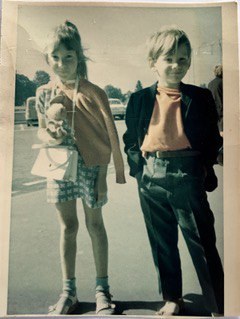
That said, it would be unfair not to recognize the extraordinary aspects of the United States. It's a country where people achieve incredible things, with successes they probably couldn't attain elsewhere. Take Oprah Winfrey, for example: from a very modest background and traumatic childhood experience, she has become one of the most influential women in the world, a respected billionaire. Such a career path would be hard to imagine in Switzerland. Even in the start-up sector, this difference can be observed. In the USA, it's not uncommon to see start-ups sell for billions of dollars, whereas in Switzerland, exceeding 100 million is already an achievement. It's not that there's a lack of talent in Switzerland, but the market is much smaller, which often forces Swiss entrepreneurs to export quickly. In short, the USA offers enormous potential, but it comes with its own set of challenges and sacrifices.
Childhood between two cultures: Swiss discipline and American freedom
My parents were caring people, not too strict, which suited me perfectly. My childhood was spent in America, where the way children are brought up is very different from that in Switzerland. In the United States, it's often said that “the child is king”. In Switzerland, on the other hand, we used to say, “Children should be seen, but not heard.” This meant that they were expected to behave well, not to make noise or mess. Their childlike, noisy and playful side was often repressed in favor of discipline. In the United States, it was much more relaxed, with fewer strict rules. If I'd had children, I think I'd have adopted a freer, American-style approach.
When I came to Switzerland, it was a completely different atmosphere, especially with my grandfather. He was strict, and I always had to behave myself, avoid doing this or that. I didn't like that rigidity. However, looking back, I think the most important thing for a child is to be brought up according to the norms of his environment, so that he can integrate better.

Parental love: silent support and meaningful gestures
My parents both lived into their 90s. Of course, many factors play a role, but I believe that genetics is the determining factor. My mother was very attentive to her health: she didn't smoke or drink, was careful about what she ate, and always got some exercise. She lived a healthy life until three months before her death, when a back problem and intense pain led her to take morphine. She died quickly after those three difficult months.
My father, on the other hand, led a less rigorous lifestyle. He smoked a cigar in the evening and drank almost a bottle of wine a day. He was less careful about what he ate, but even so, he lived as long as my mother and in good health well into old age. In a way, this shows that scrupulously following “good health practices” doesn't necessarily have a major impact on longevity if genetics are favorable.
My parents were also intellectuals. Their careers in academic medical research reflected their attachment to intellectual and artistic values. Although they were not opposed to money, they saw it as secondary to intellectual or creative pursuits. They never imposed a specific path on me, preferring to encourage me to be the best version of myself in the field I was passionate about.
I have fond memories of the love and support they always gave me. One anecdote comes to mind in particular: at the age of 12 or 13, I wasn't doing very well at school, and my teachers called my parents in. My father was totally supportive at the meeting, even when I wasn't there that day. This had a profound effect on me and gave me a huge sense of protection and confidence.
One day, a colleague at work confided in me that he had said to his child: “I love you”. He was very moved to have done so, because for him, it was a big step. He then told me that his father, of Spanish origin, had never expressed his love for him, and that he had grown up with this feeling of harshness and distance. My father never said 'I love you' to me directly, but I never doubted the love he had for me. I felt it through his actions and his constant support.
A sad story and a happy story.
The saddest story for me is that of my father's brother. He committed suicide at the age of 56. He lived in Zurich, while my father lived in Boston at the time. My father was very close to his brother, one of two brothers. This loss affected him deeply, and he always felt a certain amount of guilt, not in the sense that he could have prevented the act, but he wondered if he could have done more. This pain stayed with him for many years, and for me, it's one of the saddest stories in our family.
On the other hand, I have many happy stories, none of which immediately spring to mind as exceptional. However, one little anecdote always makes me smile and reminds me of how much my father loved me, even though it's a fairly banal story.
When I was a child, perhaps around the age of 12, my father had a large, well-stocked leather wallet, which for me symbolized success and the image of an accomplished businessman. I obviously didn't need such a wallet at that age, but I absolutely wanted it, because for me, it was a sign of prestige.
One day, during a vacation, I insisted and cried so much that he buy me an identical one, that he finally gave in, despite his incomprehension: “But why do you want this? You don't need it.” In the end, he bought me the wallet. I was overjoyed! For me, it was much more than just an object: it was a proof of love and a symbol that, in some way, I could feel equal to him, with my “big man's wallet”. This gesture, however simple, left a deep impression on me. It's a story that has brought me enormous happiness.

Suicide in Switzerland: a reflection on causes and methods
A foreign journalist asked me about suicide in Switzerland: why are the rates so high, and what methods are most commonly used?
I replied that in Switzerland, a very common method is to throw oneself in front of a train. My uncle committed suicide in this way. That day, he was on his way from Zurich to see his psychiatrist in Basel. Although he owned a car, he didn't feel up to driving and took the train. Once at the station, he threw himself onto the tracks in front of an oncoming train.
This kind of tragedy is rarely mentioned publicly, but it happens almost every day in winter. If you often take the train, especially in winter, you regularly hear announcements of a “personal accident”. This usually means suicide. The months of November and December, when light is scarce and gray skies omnipresent, accentuate depression in many people.
This phenomenon is not specific to Switzerland. In Scandinavian countries, where natural light is even more limited in winter, suicide rates also rise during this period.
It's important to note that suicide is a worldwide scourge. Every year, around 500,000 people take their own lives, a figure far higher than the number of deaths caused by war, which varies between 120,000 and 160,000 depending on the year. This shows that suicide is a global problem that is often underestimated.
There are many reasons for suicide. It usually involves a fragile psychological state and an accumulation of factors: triggering events, difficult living conditions, or deep despair. Each story is unique, but the common thread is that moment when the person can no longer hold on to life and loses all hope. Yet understanding what leads a person to this breaking point remains a complex and varied task vital to preventing such tragedies. Very often it stems from childhood. It's linked to a lack of self-esteem.

All Saints' Day and Halloween: Between memories of the dead and forgotten traditions
I think about my parents every day. In Switzerland, we have a holiday called All Saints' Day, celebrated in all Christian countries. All Saints' Day, on November 1, is dedicated to all the saints. It's also a time for remembering the dead. For example, Halloween, which takes place on October 31, has its origins in traditions linked to spirits, in particular evil spirits supposed to haunt the living. Today, Halloween has become a purely commercial event, and people have forgotten its spiritual roots.
All Saints' Day, on the other hand, is a more sober holiday, when we remember our departed loved ones. Personally, I don't feel the need to wait until All Saints' Day to think about my parents, because I think about them every day. It's been five years since they passed away, and I regularly visit the cemetery to pay my respects.
In Switzerland, there are many retirement homes for the elderly, and the system is well organized because it's publicly funded. However, mentalities on this subject vary from culture to culture. For example, in Asia, placing one's parents in an old people's home is often seen as shameful. It can be very frowned upon, as families consider it their duty to look after their elders at home.
In Switzerland, it's different. Here, it's not frowned upon, not least because our relatively affluent societies make it possible to provide better supervision and care for the elderly. Often, this care is far more comprehensive in a specialized facility than what a family could provide at home. This is also a relief for the younger generation, for whom caring for an elderly person can be particularly demanding. However, the idea remains to maintain a bond by visiting them regularly.
